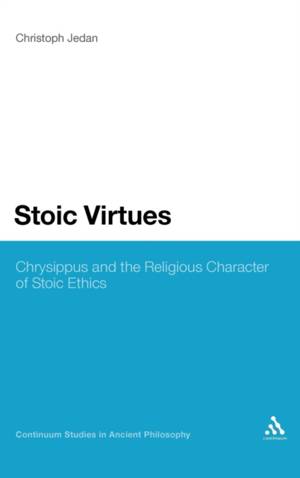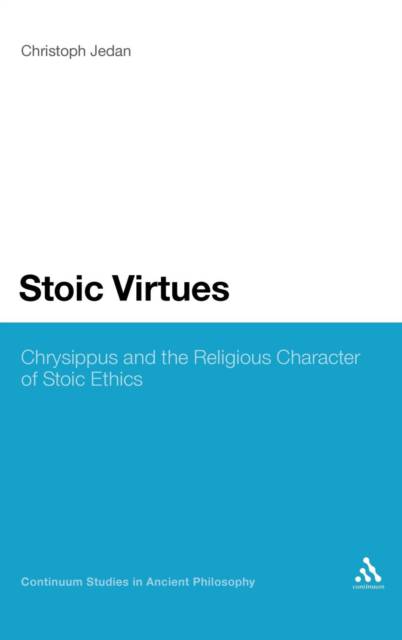
- Afhalen na 1 uur in een winkel met voorraad
- Gratis thuislevering in België vanaf € 30
- Ruim aanbod met 7 miljoen producten
- Afhalen na 1 uur in een winkel met voorraad
- Gratis thuislevering in België vanaf € 30
- Ruim aanbod met 7 miljoen producten
Zoeken
€ 339,45
+ 678 punten
Uitvoering
Omschrijving
Like its ancient rivals, Stoic ethics was a form of virtue ethics, yet while the concept of virtue was clearly central to Stoic ethics, the concept of Stoic virtue has not yet been fully explored. Instead, the existing literature tends to impose on the Stoic material philosophically quite alien non-Aristotelian interpretations of virtue. According to Christoph Jedan, however, a thorough examination of the Stoic concept of virtue leads to a reassessment of our understanding of Stoic ethics.
This book emphasises in particular the theological underpinning of Stoic ethics, which Jedan contends has been underestimated in current accounts of Stoic ethics. Jedan argues that the theological motifs in Stoic ethics are in fact pivotal to a complete understanding of Stoic ethics. The book focuses on Chrysippus, the most important of the early Stoic thinkers, suggesting that his contribution, and in particular its religious aspect, remained a key point of reference for later Stoics. This fascinating book makes a crucial contribution to the field of ancient ethics.
This book emphasises in particular the theological underpinning of Stoic ethics, which Jedan contends has been underestimated in current accounts of Stoic ethics. Jedan argues that the theological motifs in Stoic ethics are in fact pivotal to a complete understanding of Stoic ethics. The book focuses on Chrysippus, the most important of the early Stoic thinkers, suggesting that his contribution, and in particular its religious aspect, remained a key point of reference for later Stoics. This fascinating book makes a crucial contribution to the field of ancient ethics.
Specificaties
Betrokkenen
- Auteur(s):
- Uitgeverij:
Inhoud
- Aantal bladzijden:
- 244
- Taal:
- Engels
- Reeks:
- Reeksnummer:
- nr. 15
Eigenschappen
- Productcode (EAN):
- 9781441112521
- Verschijningsdatum:
- 10/02/2010
- Uitvoering:
- Hardcover
- Formaat:
- Ongenaaid / garenloos gebonden
- Afmetingen:
- 157 mm x 234 mm
- Gewicht:
- 521 g

Alleen bij Standaard Boekhandel
+ 678 punten op je klantenkaart van Standaard Boekhandel
Beoordelingen
We publiceren alleen reviews die voldoen aan de voorwaarden voor reviews. Bekijk onze voorwaarden voor reviews.








